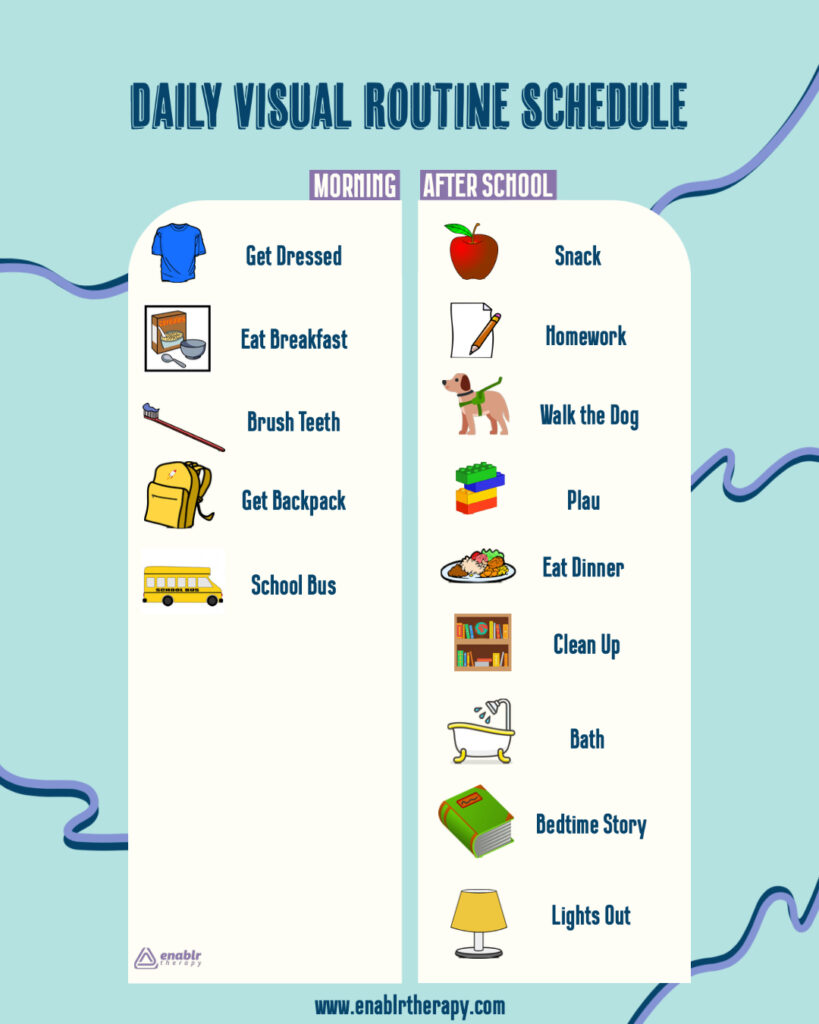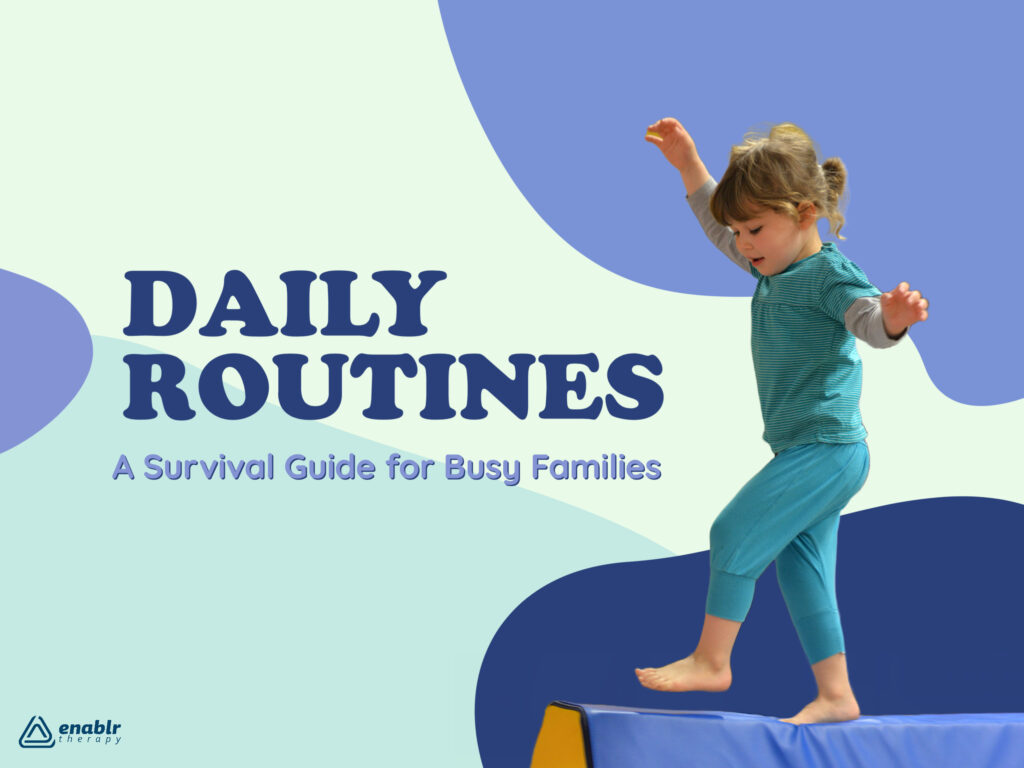Most of us have several routines that we follow almost everyday. We tend to do the same series of activities when we get up or go to bed, leave the house or arrive at work, bath or dress, just to name a few. These routines become a semi-conscious checklist that helps us to be efficient and gives us a sense of security and normalcy.
In addition to our daily routines, most of us also take some time to review our calendar or think through the day’s events and to-dos. This routine helps us to structure our time and prepare for non-routine events of the day. Certainly, life can throw some curveballs and not everything can be planned. But generally speaking, we tend to perform better and feel more relaxed when we know what is coming.
The same is true for children. When children know their daily schedule and routines, they can anticipate and prepare for what is going to happen. These routines provide children with a sense of stability and predictability which leads to feelings of security and improved behavior and mental health. Daily routines can also be used to strengthen family bonds when activities like meals, family walks, and bedtime stories are incorporated. Children do best when they are comfortable and understand what is expected. Building daily routines and providing a “schedule” of activities can help everyone’s day go better!
Implementing Daily Routines

When first implementing daily routines, start simple and be consistent. Establish mini-routines for key daily activities instead of trying to tackle the entire day. Meal times, bedtime, bathtime, or morning wake up are good places to start. These activities offer opportunities for your child to master skills and learn time management which fosters independence. You may also want to involve your child in creating the routine to get better acceptance by them.
The American Occupational Therapy Association has published a “Tips for Living Life to its Fullest- Establishing Routines For Children” series which explores different considerations in setting up an everyday routine. Daily routines can and should be started at a young age. Check out the tip sheets below.
Calendars
Simple schedules or calendars can also be created for kids so that they know what will be happening during an activity, a day or week. Younger children will need pictures to symbolize events, where older kids who read can use a written calendar or checklist. The schedule or calendar should be placed where the whole family can reference it and see it regularly. A bathroom mirror, bedroom door, or refrigerator are good spots.
Schedules can show the actual order of events for a day, or they may just show the special events and to-dos of the day. Think about the amount of structure that your child needs and their understanding of time. Would they benefit from a morning, afternoon, evening, daily, or weekly schedule? Do they need their daily mini-routines included or do they only need reminders for special events and to-dos on a particular day? Talk with your kids to get their input on what they might like on a calendar. Be sure to incorporate some downtime to unwind and engage in unstructured play which is essential for mental health, creativity and overall development.

Be sure to recognize and celebrate when your child follows a routine well. Positive reinforcement encourages them to continue with adhering to the schedule and helps them to feel proud of their accomplishments and independence. Using schedules and calendars can help with decreasing anxiety and disruptive behavior, promote cooperation and participation in daily activities, foster independence and social engagement.
Contact us to learn more about Enablr Therapy’s services.


